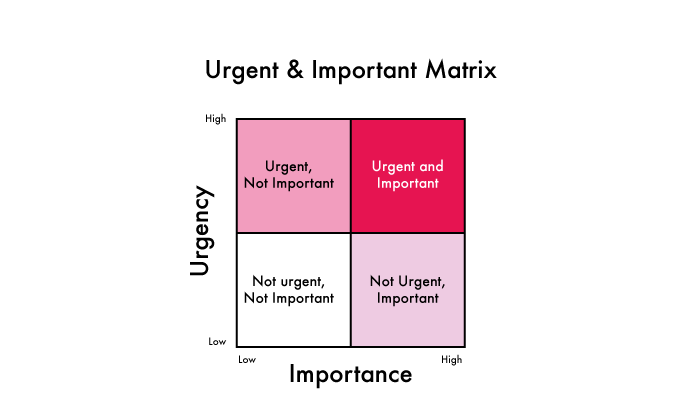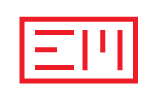
Prioritization of tasks is key for time management. To do this efficiently I found it very useful to recognize the difference between the terms urgent and important.
– Urgent tasks are deadline based. This is usually depends on others more than on yourself. The sooner the task needs completion the more urgent it is, this has no relation to importance (it is a simple matter to rank any tasks that you have in terms of their deadlines).
– The importance of a job drives how much “time” you want to spend on it. Notice that this is independent of “urgency” and is what you want to do not what you actually spend on it. For any time management task the quality of your output will often relate to the time you spend on it. Again, it is a simple matter to rank the importance of the same tasks, for example, “high”, “medium” or “low” or a simple numerical ranking.
The purpose of tackling the important and non urgent tasks is to ensure that these don’t become important and urgent. If you spend all of your time concentrating on the urgent and important tasks you will just be firefighting. You need to be proactive rather than reactive.
Some tips on better ways to manage your time:
- Set three Most Important Tasks (MITs) for the day. Often the best way to find out what the most important tasks are is to narrow down your three most important items for the day. Ask yourself: “If I could only do three things today, what would I feel the most fulfilled in doing?”
- It is important to focus on providing value. One of the easiest ways for me to discover whether I’m working on important or urgent items is asking myself how much value it will provide myself or others. Just compare spending one hour with someone you care for and one hour browsing the internet without a clear purpose.
- Think long-term. Another good way to find out how important the work you’re doing is, is to focus on how long-term of an impact it will have. Organizing the files on my desktop will have a much shorter impact than writing a post that people will be able to read for years to come.
- Finish your MITs first. I find the best way for me to complete my MITs is to start on them right away in the morning. When I spend my time working on non-important but urgent items I end up getting caught up in trying to put out the next fire. Also, when I try to work on my important tasks later in the day, there’s usually more distractions and more interruptions. Finishing the most important tasks in the beginning of the day ensures that if the afternoon comes and you get bombarded with busy-work, you can still finish the day with the feeling of accomplishment.
- Have a clear vision. This goes along with setting your most important tasks, but here we’re thinking about our long-term vision. If you can’t measure it, you can’t manage it. Creating a vision is about seeing objectively where you’d like to be in the next years. It also can include what accomplishing those objectives will feel like. When we have a clear vision of what we want the future to look like, it’s a lot easier to stay on task and not get caught up in answering the next email or voicemail. Think about whether or not the work you’re doing is moving you closer to your vision, or if it won’t make much of a difference tomorrow or next week.
All in all, being aware of your urgent and important tasks help you prepare your strategy on how to accomplish your goals and better manage your time

Recent Comments